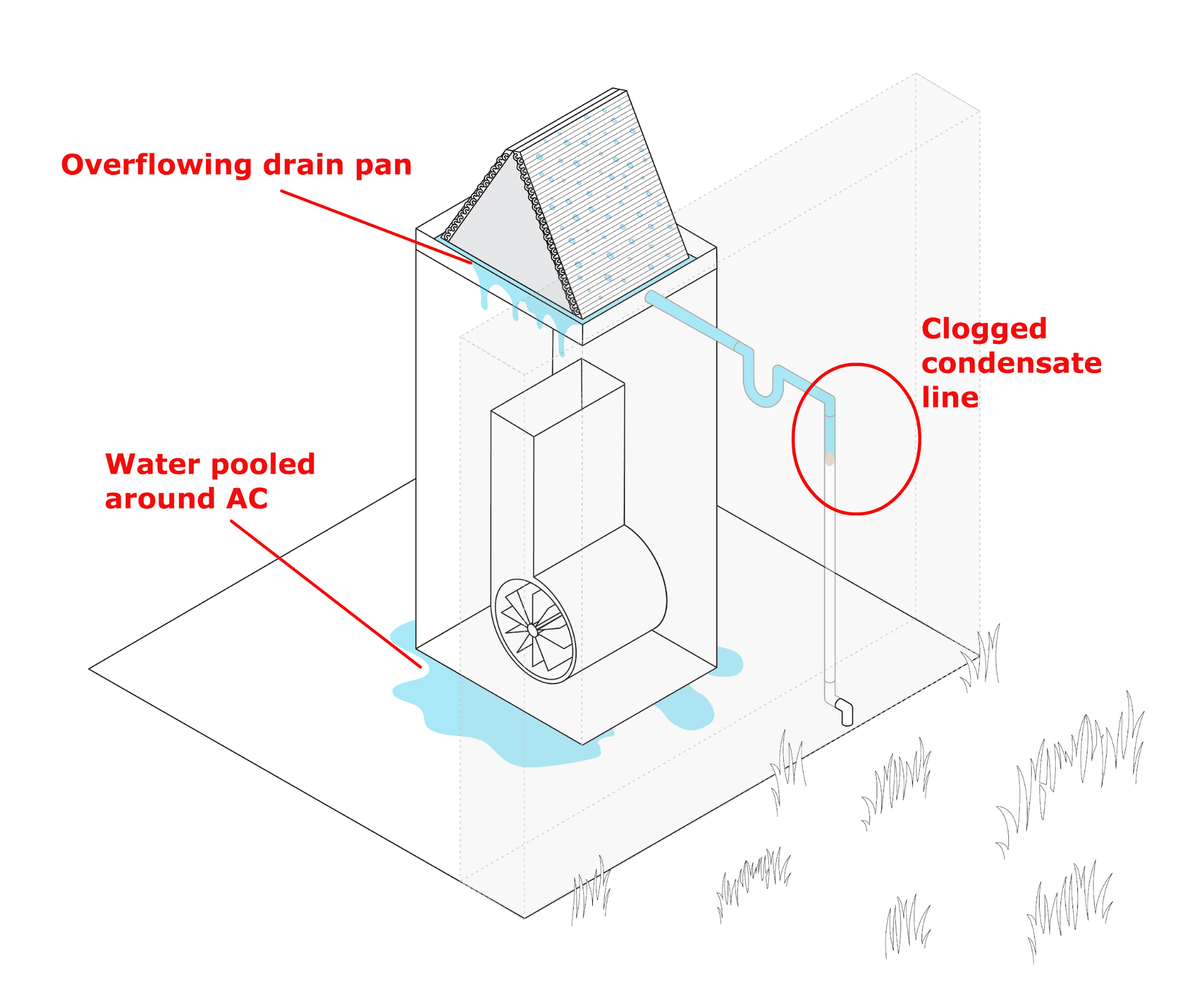Tried to change your air filter and noticed that it was wet? That’s an issue. Your air filter should never be wet, and if it is, you should replace it ASAP. Your air filter is meant to catch all kinds of particles and debris that circulate in your home’s air, and a wet or damp surface could allow some of those particles, like mold, to grow.
Now, we’re willing to guess that you’re probably wondering why your filter was wet in the first place.
Your AC filter could have been wet because of:
- A frozen evaporator coil
- Clogged condensate drain
- Leaking drain pan
Below, we’ll look at each of these issues in a little more detail, so you can get a better idea of why water is leaking onto your air filter and how to stop it.
Want a professional’s opinion? We’ve been helping NJ homeowners for the last 25 years, so we know our way around an AC system. Learn more about the AC repairs we offer or schedule service!
Wet Filter Cause #1: Frozen evaporator coil
If your air filter is wet AND you notice the following signs, a frozen evaporator coil may be your issue:
- Water around your indoor AC unit
- Warm air coming from your vents
- Ice forming on your refrigerant lines outside
If any of these “symptoms” sound like what you’re experiencing, keep reading. We’ll discuss what an evaporator coil is and what causes it to freeze (if none of these issues sound familiar to you, jump to the next section, your issue is likely something else).
What is an evaporator coil and how can it freeze?
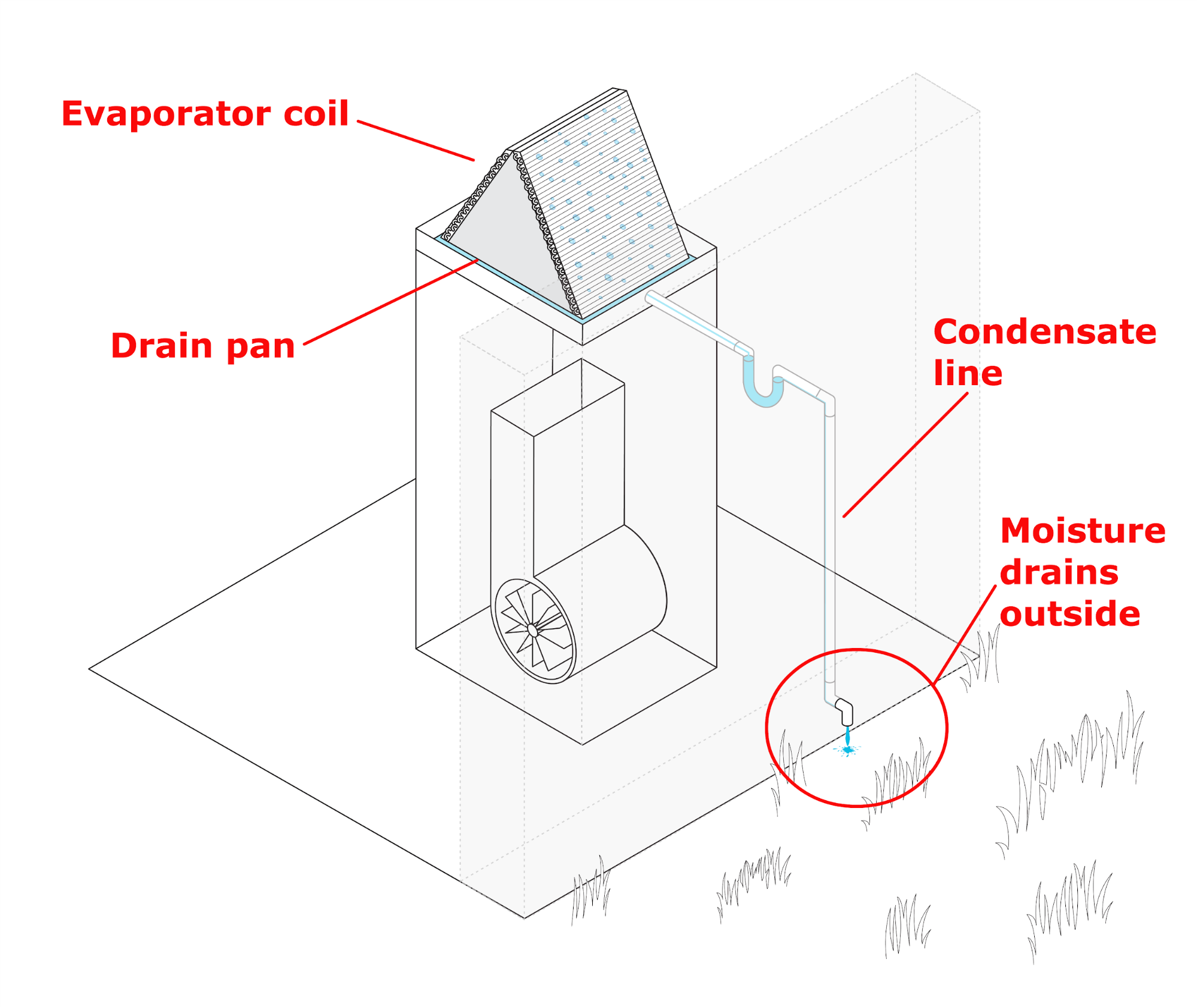
Your AC cools your home by removing heat from the air inside your house. The warm air from your home is blown over the evaporator coil, which is full of a very cold substance called refrigerant. Refrigerant absorbs the heat from your home’s air and carries it outside, where the heat is dumped.
But, transferring heat from your home’s air to refrigerant isn’t your evaporator coil’s only job. The evaporator coil also collects moisture from the air, which dehumidifies your home. Under normal conditions, the moisture from your home’s air would gather on the outside of your evaporator coil and drip down into a drain pan, which is located below the coil.
However, since refrigerant is a very cold substance, and if there is not a consistent supply of warm air blowing over the evaporator coil, it can get so cold that it freezes the moisture that condenses on the coil. If enough moisture freezes, it can cover the entire evaporator coil in ice.
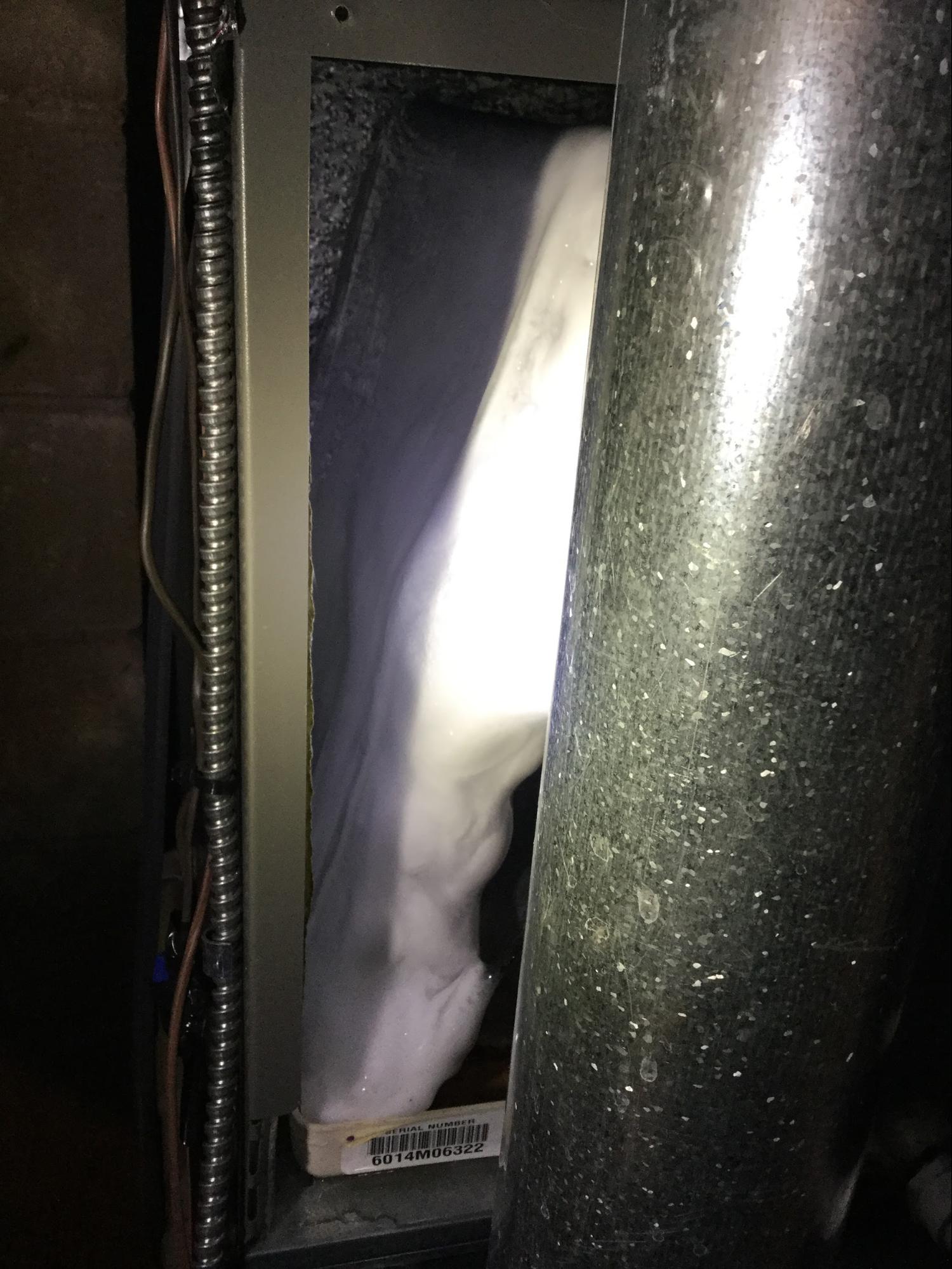
Eventually, this ice will start to melt, and when it does, it can easily overflow the drain pain and leak down and around your air handler (indoor AC unit). If your air filter is near your indoor air handler, it can get wet.
What causes an evaporator coil to freeze?
If your evaporator coil is frozen, it’s most likely due to:
1. Dirty air filter or restricted airflow- If your air filter is clogged or blocked, it will prevent air from making its way into your AC system. Without enough warm air, your evaporator coil freezes. To prevent restricted airflow, you should ensure that all supply and return vents are unobstructed and that your air filter is clean. If you aren’t sure how your air filter should look, it should look like the light green filter on the left of the photo below:
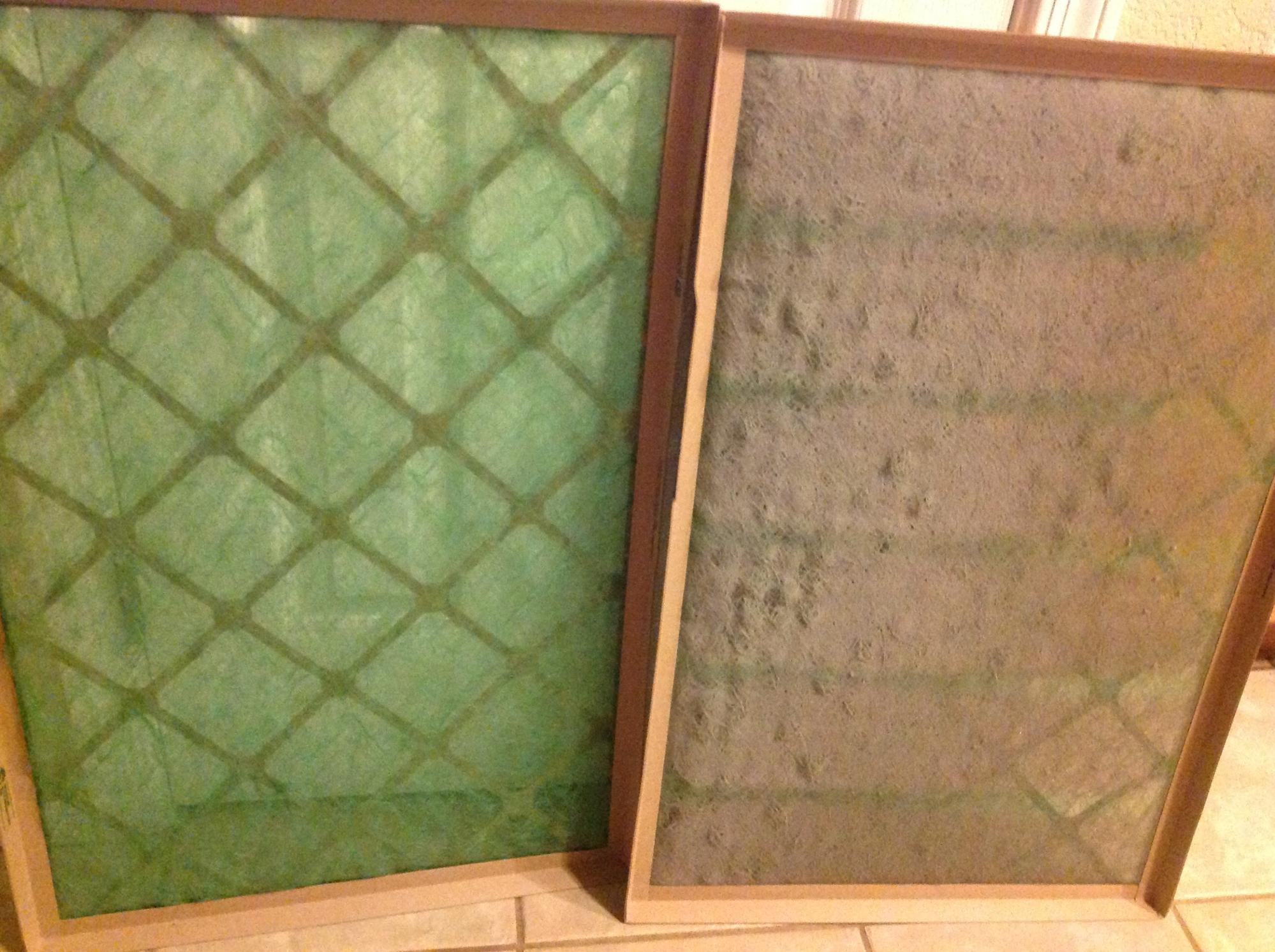
2. Low refrigerant- If there is a leak in your refrigerant line, there won’t be as much heat transferred from your home’s air to your refrigerant. Less heat absorbed means a colder evaporator coil, which can lead to freezing. If you think a refrigerant leak could be your issue, you’ll need to contact a professional to come and check it out. Refrigerant is a toxic substance so this is not a repair you should attempt on your own.
3. Dirty evaporator coil- Although your air filter works to block dust and debris from making their way into your AC system, it can’t catch everything. Over time, your evaporator coil can become covered in a light layer of dust, which can prevent the transfer of heat from your home’s air to the refrigerant. The less heat, the colder the evaporator coil can get, eventually leading to a frozen coil.
Wet Filter Cause #2: Clogged condensate drain
A clogged condensate drain may be the cause of your wet air filter if you also notice:
- Water pooling around the base of your indoor AC unit
- Increased indoor humidity
- No water dripping from your condensate drain (outside)
What is a condensate drain and how does it become clogged?
As we mentioned above, when your home’s air comes into contact with the evaporator coil, the moisture in the air condensates on the coil and drips into a drain pan, located directly below the coil.
That moisture then exits your home via a condensate line, which drains outside. However, if there is a clog in this line, the water will back up, eventually overflowing your drain pain and spilling out around your air handler.
If your air filter is nearby, it can become wet.
How do I unclog my condensate drain?
You can try to unclog your condensate drain by using a shop vac to suck out any clogs or debris from the outside drain. Try to create an airtight connection between the condensate drain and the shop vac and turn the vacuum on for 1-2 minutes.
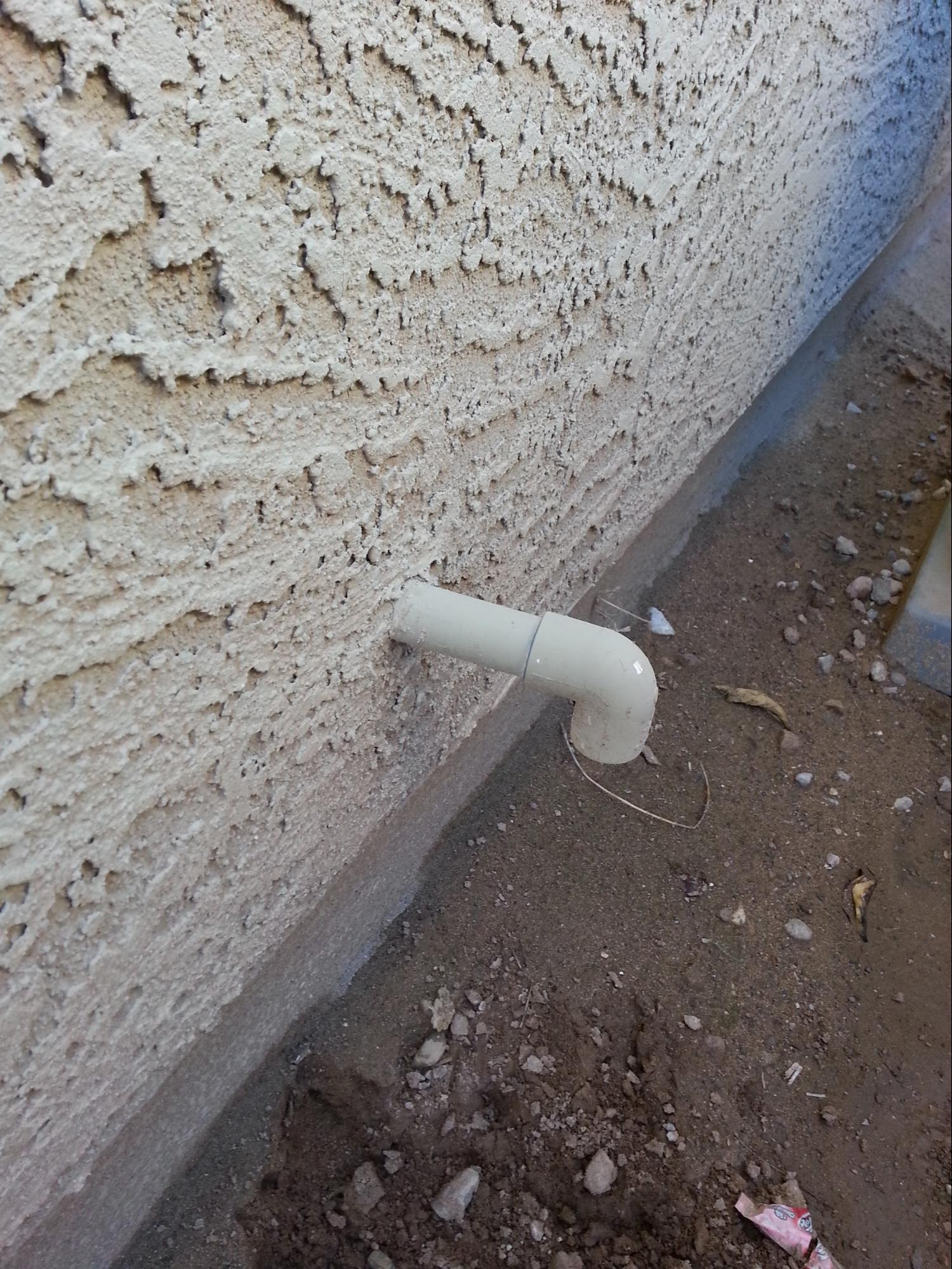
If this doesn’t work, the clog is probably too high in the line, and you’ll need a technician to come and unclog it for you.
Wet Filter Cause #3: Leaking drain pan
If your air filter is wet due to a leaking drain pan, you may also notice water pooling around the bottom of your AC system.
Like we discussed above, your drain pan is located underneath your evaporator coil and is in charge of collecting the condensation that collects on your evaporator coil. However, if your drain pan is cracked or rusting, water can leak through it and may end up on the ground around your AC system (and can also soak your air filter).
If your drain pan is leaking, the most likely reason is simply old age. Over time, your drain pan can crack, rust and break, resulting in leakage. If you think you may have a leaking drain pan, we suggest you reach out to an HVAC technician who can help you replace it.
Still having issues with a wet air filter? Call Air Experts
Regardless of the reason for your wet air filter, we can help. All of our techs are highly trained to handle any AC repair, so no matter what’s going on, we can accurately diagnose it and get it fixed quickly.


